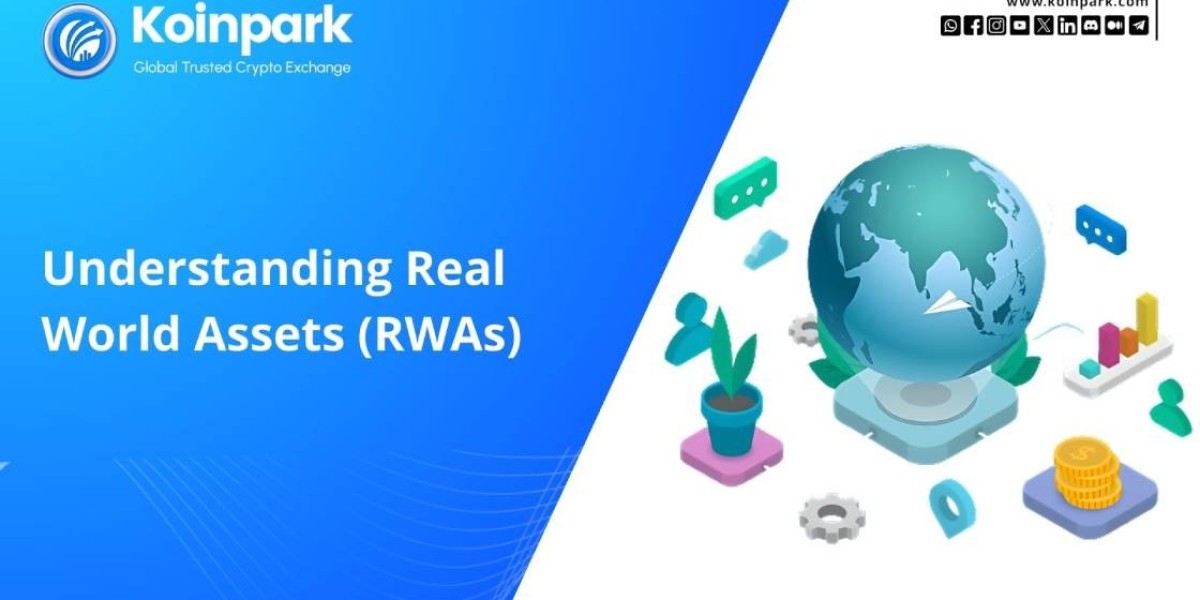Real-world assets (RWAs) are tangible items like real estate, commodities, and precious metals, or digital assets like stocks and bonds, that are turned into digital tokens on the blockchain. This process, called tokenization, makes these assets easier to buy, sell, and own in smaller pieces, which brings many benefits.
Importance of RWAs in Crypto
RWAs are vital in the crypto world for several reasons. First, they add liquidity to assets that are usually hard to sell quickly, like real estate or fine art. Tokenizing these assets makes them more accessible to a broader range of investors.
Second, RWAs offer diversification.
Crypto investors can include RWAs in their portfolios to balance out the volatility of purely crypto assets. This diversification can help reduce risk and increase stability.
Third, RWAs connect traditional finance with decentralized finance (DeFi). Defi platforms enable the lending, borrowing, and trading of RWAs, providing investment opportunities similar to those offered by traditional financial institutions.
Use Cases of RWAs in Crypto
RWAs have various applications in the crypto space:
Lending and Borrowing: Platforms allow users to use tokenized RWAs as collateral. Borrowers get stablecoins or other tokens, while lenders earn interest. This is a great way to leverage assets without needing to buy bitcoin directly.
Index Funds: DeFi platforms create pooled investments that give passive exposure to a mix of RWA tokens. These funds diversify risk and offer broader asset exposure.
Asset Management: Autonomous fund protocols trade RWA tokens to generate returns for investors, allowing active management and potentially higher yields.
Less Risky Investments: Tokenized assets like real estate and commodities are typically less volatile than purely crypto assets, offering a safer investment option.
Tokenization Process
The tokenization process includes several steps:
Identifying the Asset: Choose a valuable asset, either physical or digital.
Regulatory Approval: Ensure the tokens are legally recognized and enforceable.
Selecting a Blockchain: Pick a suitable blockchain, like Algorand, for its cost-effectiveness and scalability.
Creating and Issuing Tokens: Create digital tokens representing shares of the asset and record ownership and transaction details on the blockchain. These tokens can be listed on a global cryptocurrency exchange for wider accessibility.
Trading Tokens: Tokens can be traded on decentralized applications and exchanges, increasing liquidity and accessibility.
Examples of RWAs in Crypto
TravelX: Tokenizes airline seats, allowing users to buy, trade, or resell airline tickets as non-fungible tokens (NFTs).
Ctrl Alt: Provides fractional ownership of niche investments as digital assets, making them accessible to everyday investors. Keep an eye on token listings to discover such unique assets.
Koibanx: Tokenizes assets like real estate and stocks, enhancing liquidity and accessibility.
Evident: Facilitates capital raising through asset tokenization and offers co-investment opportunities.
Realio: Brings private equity, real estate, and other RWAs to DeFi, giving investors access to traditionally exclusive asset classes.
Conclusion
RWAs are an essential and growing trend in crypto. By tokenizing physical and digital assets, they become more liquid, accessible, and diversified. RWAs are used in various crypto applications, from lending and borrowing to asset management and index funds.
The tokenization process involves several steps to ensure assets are valuable, legally recognized, and easily tradable. As the crypto industry evolves, RWAs will play a significant role in the future of finance.








